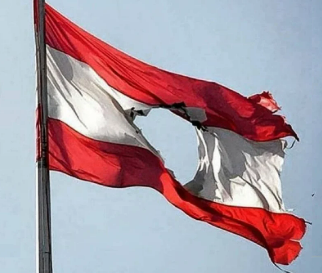Strategizing from 7 cities across the globe
The Lebanese Nation Building Process
Despite efforts to initiate a solidified identity, Lebanon continues to face significant obstacles that prevent the path toward stability and development. Inspired by Nawaf Salam’s book Lebanon between past and future (2021), this article will analyze Lebanon’s historical and current events that challenged the road of nation building.
DEVELOPMENTLAWCIVIL SOCIETYEDUCATIONPOLITICSINTERNATIONAL LAWTRENDMIDDLE EAST
Laura Ingea
6/11/20254 min read


As the current Lebanese Prime Minister, Nawaf Salam, declared, “The monopoly of violence should belong to the state and the state only”. This statement clearly represents a major challenge that many countries face: the ability to build a unified nation. In order to build a harmonious nation, a long and complex procedure has to be implemented. Mostly, the nation building process consists of establishing a standardized society with people sharing common values, languages, religions, and history. Lebanon serves as an example of a polarizing process of nation-building that continues to face numerous hardships to this day. Despite efforts to initiate a solidified identity, Lebanon continues to face significant obstacles that prevent the path toward stability and development. Inspired by Nawaf Salam’s book Lebanon between past and future (2021), this article will analyze Lebanon’s historical and current events that challenged the road of nation building.
Home to more than 18 religious sects, Lebanon has been marked by major challenges. This fragmentation enacted into major tensions between different Lebanese political parties. One of the most disastrous conflicts would be the 1975 civil war between the Lebanese Front, who were against Palestinian militancy, and the Lebanese National Movement, which consisted of pro-Palestinian Leftists. At the time, Beirut was divided into East Beirut (Christian) and West Beirut (predominantly Muslim), which led to a deep division in the formation of a unified Lebanese identity. The treaty of the Taif accord, signed in 1989, ended this civil war, aiming to create a more balanced system between Christians and Muslims. This was displayed through the political balance that shifted from a 6:5 Christian-Muslim ratio in parliament to a 50:50 split, meaning an equal number of Christian and Muslim deputies. In his book Lebanon Between Past and Future (2021), Prime Minister Nawaf Salam provides concrete examples of how Lebanon's sectarian power-sharing system restrains national unity and effective governance. He highlights that this system often transforms state institutions into instruments of political patronage, undermining their capacity to deliver equitable public services.
Furthermore, the prime minister critiques the implementation of the Taif Agreement which reinforced sectarian quotas in governance. Another destabilizer implication of the Lebanese nation building process is the rise of Hezbollah, the Shi'a Islamist militant party that holds close ties to Iran and Syria. The group's military and political influence made the Shi'a population a significant player in the country's political system, often in opposition to Christian and Sunni factions. This brings us to an essential struggle of common nation construction — the possession of arms. Hezbollah’s military wing became a powerful force, particularly in southern Lebanon, and its political arm gained significant influence in Lebanon’s parliament. In his book, Nawaf Salam (2021) addresses the challenges posed by Lebanon's sectarian system, which has allowed groups like Hezbollah to operate with significant autonomy. He critiques the persistence of sectarianism, emphasizing that it has led to a fragmented political landscape where various factions have substantial influence. Salam argues that the country's political system has been shaped by the dominance of religious communities, resulting in an "unfinished state" where citizens are marginalized and the state remains incomplete.
This armed party not only threatened the Lebanese political parties but also the Lebanese army, characterizing it as “weak” and “inefficient”. In that perspective, many Lebanese civilians hold a sense of dependency towards the Hezb for national defense, which further weakened the Lebanese military identity. The state’s monopoly on the use of force, which is crucial for sovereign nationhood, has been directly contested. This situation has made it difficult to foster a collective national identity. Instead of rallying around a single, neutral national institution like the army, the population became divided in their allegiances. In the context of nation-building, such fragmentation poses a serious threat as it weakens central authority, complicates governance, and delays efforts to build a resilient state. With the upcoming waves of devastating wars in Gaza and Lebanon by Israel, a campaign emerged targeting Hamas and Hezbollah.
This conflict weakened the power and armament of the terrorist groups, not only in Lebanon but throughout the Middle East. As a result, Hezbollah experienced a decline in influence and began the retrieval of their weapons from the Lebanese borders. This gave hope for the Lebanese government to regain control of arms, which is vital to the path of nationhood. The end of Israeli supremacy and its near-complete withdrawal from southern Lebanon diminished Hezbollah’s military and political influence, allowing the Lebanese army to take control. While the disarmament of Hezbollah remains a complex issue, any reduction in its power provides a foundation for a more peaceful and stable power-sharing system. To pave the way to success lies in overcoming sectarian divisions and promoting an inclusive approach that ensures equal representation for all citizens.
By strengthening the rule of law and fostering cooperation between different political factions, Lebanon can begin to heal from its past struggles. As Nawaf Salam announced in the national news agency regarding the Lebanese’s future vision (2025): “It is time to embark on a new chapter rooted in justice, security, progress, and equal opportunities, making Lebanon a nation of free individuals with equal rights and responsibilities”. Although the path ahead remains difficult, the foundation for a more peaceful and prosperous future is being laid.
After decades of conflicts and tensions, Lebanon is still failing to achieve the goal. Today, many Lebanese people appear to have grown weary of the country’s entrenched sectarian and conflict-driven political system. Upcoming improvements such as the reduction of Hezbollah’s influence and the election of independent leadership have proved the ability to progress. If these developments are sustained, they could mark a turning point in Lebanon’s journey toward unity and stability, leading to a mature nation.
references:
Salam, N. (2023). Lebanon between past and future. (A. Haddad, Trans.). Dar Al Saqi. (Original work published 2021).
